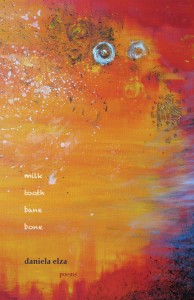:clever crows:inevitable minds
Posted by Daniela Elza on Aug 08 2009
Ok, so it is not like we are the only ones that can think. I hope we have, at least, come to realize that. I watched Janine Benyus: Biomimicry in Action yesterday. Loved the way she said: Imagine designing Spring. Imagine that orchestration. You think TED is hard to organize. Imagine the timing, the coordination. etc.. How nature is our teacher, and a genius one at that. Poses the question: How can we again become such organisms who gracefully live on this planet?
Benyus begins her talk:
“If I could reveal anything that is hidden from us, at least in modern cultures, it would be to reveal something that we have forgotten, that we used to know as well as we knew our own names. And that is: that we live in a competent universe. That we are part of a brilliant planet. And that we are surrounded by genius. Biomimicry is a new discipline that tries to learn from those geniuses and take advice from them, design advice.”
Yes, please, do see it. It does remind us what we keep forgetting. That we are not the genius. And while we are on the topic of genius, you could also see Elizabeth Gilbert’s talk on nurturing creativity. She goes back to the origins of the word genius and how it is not something the rare individual has, but it is in all of us. Or rather in the original construct it was something that visited us. That it is loaned to us for ever so briefly, for that brief eternal dance. So we cannot take all the credit for the sucess, or take all the blame for the failure. Hmmm… I like that distancing. Makes it safer to dabble in the artistic process and grow the poetic consciousness without tying it up with our ego. Which I believe has done quite a bit of disservice to poetry. In fact the moment your artistic work gets tied up in the ego, it becomes something else. It is not poetry anymore.
Bringhust tells us:
“Composing a poem is a way of leaving the self behind and getting involved in something larger.” (From Thinking and Singing, 2002, p.161)
And since I love crows here are a couple of testimonies about their amazing abilities, ways of thinking, their genius.
Clever Crows Porve Aesop’s Fable is More than Fiction
Joshua Klein on the intelligence of crows. He’s come up with an elegant machine that may form a new bond between this animal and human, both of whom seemed to have co-evolved together. Culturally adaptive, crows can teach each other. What is so special about us, you ask? Good question? I am asking that too.
I suspect we have shrunk, and limited our minds’ abilities with our limited focused activities that we think lead us to progress. These days I seem to be amazed at non-human intelligence/genius much more than human “intelligence” or what passes for it. Something about the lack of resonance and coherence in human existence and way-of-being in the world really bothers me. Our insistence (a kind of arrogance) that we think we are it. We are the one’s with language, reasoning power, etc. We have instruments to measure everything. But when was the last time you measured the area or humidity of your home without using an instrument? Kevin Kelly’s Inevitable Minds suggests: nature has a fundamental affinity, if not fondness, for intelligence.
He writes:
The brain of a rock ant contains less than 100,000 neurons and is so small as to be invisible. Yet an rock ant mind can perform an amazing feat of calculation. To assess the potential of a new nesting site, rock ants will measure the dimensions of the room in total darkness and then calculate – and that is the proper word – the volume and desirability of it. For many millions of years, rock ants have used a mathematical trick that was only discovered by humans in 1733. Rock ants can estimate the volume of a space, even an irregular shaped one, by randomly laying a scent trail across the floor of the space, “recording” the length of that line, and then counting the number of times it encounters that scented line during additional diagonal runs across the floor. The calculated area is inversely proportional to the frequency of intersections times length. In other words, the ants discovered an approximate value for Î derived by intersecting diagonals. Headroom is measured by the ants with their bodies and then “multiplied” with the area to give an approximate volume of their hole.
So when we talk about poetry I am more willing to think of it as that genius that we hear when we are willing to listen. I will resort to Robert Bringhurst (again) here:
“Poetry is what I start to hear when I concede the world’s ability to manage and to understand itself. It is the language of the world: something humans overhear if they are willing to pay attention, and something that the world will teach us to speak, if we allow the world to do so.” (Thinking and Singing, p.162)
Let’s pay attention. Let us listen better to this genius that surrounds us.
And let us start now.




